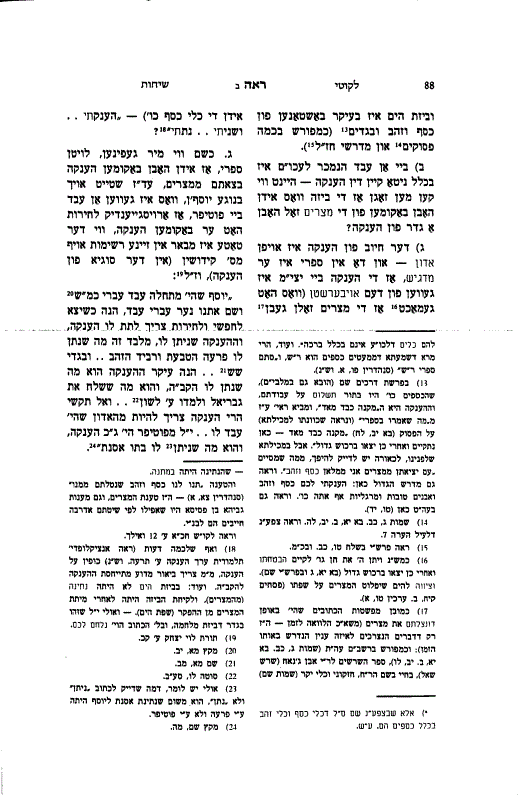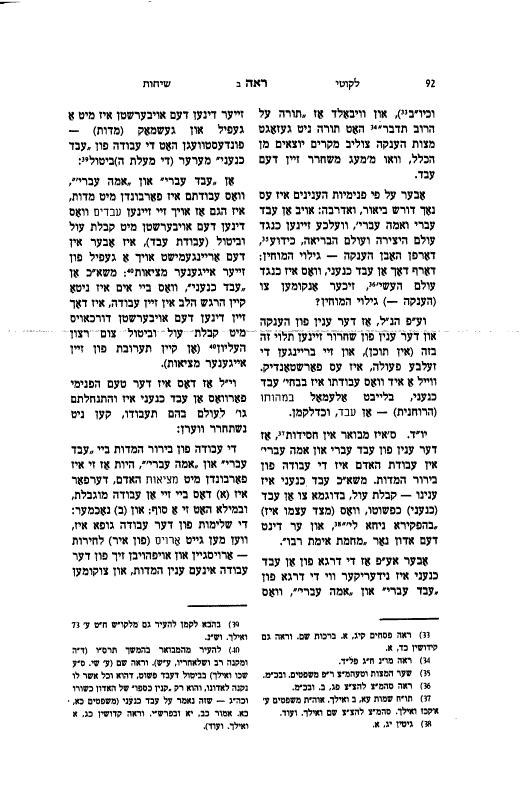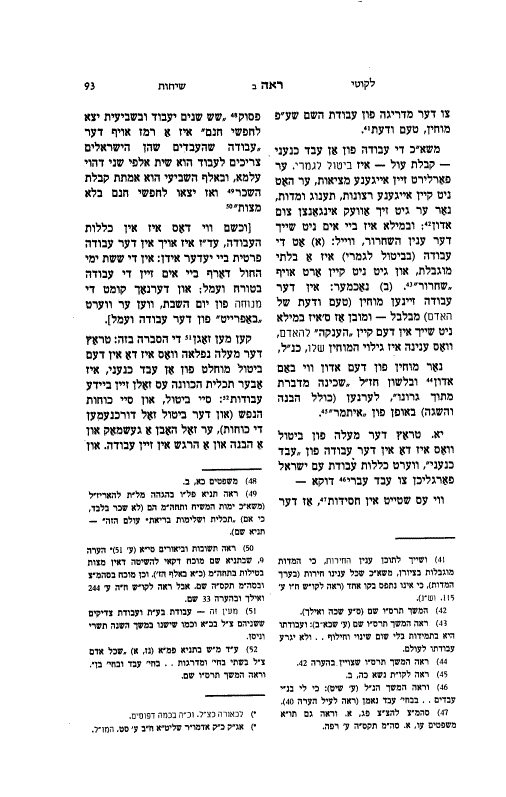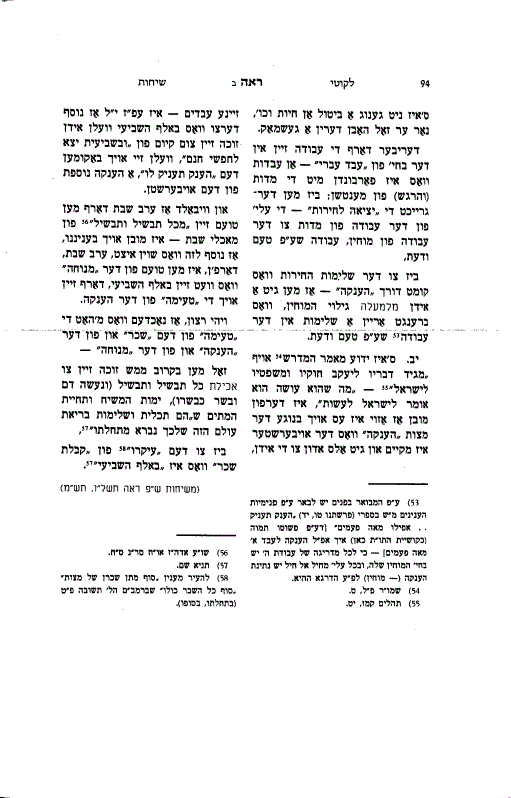חקר חובת הענקה לעבדים עבריים ומקרה יציאת מצרים ושחרורו של יוסף
Exploring the Obligation of Hanokoh for Hebrew Servants and the Cases of the Exodus and Yosef’s Release
א) בפסוק כתוב: "וזכרת כי עבד היית בארץ מצרים ויפדך ה' אלקיך; על כן אנכי מצוך את הדבר הזה היום" (דברים כ"ד:י"ח). ספרי מפרש: כמו שהענקתי לך ושניתי לך, בביזת מצרים וביזת הים, גם אתה הענק לו ותשנה לו. למה ביזת מצרים וביזת הים אינן נזכרות בהפסוק?
ב) הענקה, הרי 1) צריכה להיות מדברים של ברכה, 2) שהנותן הוא האדון 3) והאדון הוא ישראל. ואיך אפשר לומ שביזת מצרים וביזת הים הוא מטעם הענקה?
ג) ברשימת הגאון ר לוי יצחק מבאר, שיוסף קבל הטבעת, רביד זהב, בגדי שש. ובתו של פוטיפר, "אסנת", וגבריאל למדו ע' לשונות הוא מענין הענקה לעבד עברי בעת שחרורו, וצריך להבין כנ"ל שהרי יוסף 1) היה עבד אצל נכרי. 2) עיקר ההענקה קבל מהקב"ה, וגם מפרעה. 3) ולא היו דברי ברכה, ואיך אפשר לומר שזה שייך לענין הענקה?
ד) ישנם שני חלקים להענקה: הכרת הטוב של האדון וקבלת שלמות השחרור של העבד. החלק השני הוא המדובר בפסוק: "ויפדך ה'".
ה) לשלימות פדיית העבד לחירות, אין הבדל מי הוא האדון או מי נותן את ההענקה ואין צורך שההענקה תהיה בכלל ברכה, ורק בחיוב האדון צריך כל הנ"ל.
ו) חידוש הספרי הוא שאין זה חיוב האדון אלא נוגע לשחרור העבד. מבחינת האדון יש שיעור מסוים שחייב ליתן אך מבחינת העבד אין שיעור, ולכן לא נזכר בפסוק השיעור.
ז) ובזה יש לבאר את הצורך להענקה ליוסף, אף שהיה עבד לנכרי, כדי שהשחרור שלו יהיה שלם. אמנם כשפוטיפר משתתף בזה שנתן לו את אסנת זה מוסיף גם ב בהשלמת השחרור.
ח) ההתאמה בין נגלה לקבלה ששחרור העבד מקנה לו חכמה ובינה, וזהו ענין – חכמה ובינה.
ט) לפי הקבלה מה הענקה היא רק לעבדים ואמהות עבריים, ולכאורה עבד כנעני זקוק יותר לגילוי מוחין?
י) עבד ואמה עבריים מקבלים את שכרם ותענוגם בעבודתם ובעבודתם יש גבול ושחרור, אבל עבד כנעני עבודתו הוא קבלת עול ואין בזה הגבלות והוא תמיד במצב של ביטול גמור.
יא) עם זאת, עבודת בני ישראל היא כעבד עברי, שכן צריך שהביטול יחדור לכל כוחותיהם עד כדי שיתענגו בעבודת קבלת העול, עד שלימות החיות בעבודת המוחין.
יב) מגיד דבריו הקב"ה מעניק לבני ישראל.
A) The verse states: "And you shall remember that you were a servant in the land of Egypt and the Lord your God redeemed you; therefore I command you this thing today" (Deuteronomy 24:18). The Sifrei explains: Just as I gave you extras and redeemed you, with the spoils of Egypt and the spoils of the sea, so too you should give extras to the servant and treat him kindly. Why are the spoils of Egypt and the spoils of the sea not mentioned in the verse?
B) Extras (hanokoh) should be 1) from things of blessing, 2) given by the master, 3) and the master is an Israelite. How can we say that the spoils of Egypt and the spoils of the sea relate to the concept of hanokoh?
C) The Rebbe's father Hagaon Rabbi Levi Yitzchak writes that: Yosef received a ring, a golden chain, and fine clothes. Potiphar's daughter, Asnat, and the seventy languages learned by Gabriel are related to the concept of hanokoh for a Hebrew servant at his release. It needs to be understood how this applies given that Yosef 1) was a servant to a non-Jew, 2) primarily received his extras from God and also from Pharaoh, 3) and these were not items of blessings. How can it be said that this pertains to the concept of hanokoh?
D) There are two parts to hanokoh: the acknowledgment of gratitude from the master and that the haokoh completes the freedom of the servant. The second part is what is discussed in the verse: "And the Lord redeemed you."
E) For the completeness of the servant’s redemption to freedom, there is no difference who the master is or who provides the extras. The extras do not need to be items of blessing; that requirement is for the obligation of the master.
F) The novelty of the Sifrei is not discussing the obligation upon the master but pertains to the servant’s release. The master has a limited amount to give, but to accomplish the servant’s freedom ther are no limits, which is why the amount is not mentioned in the verse.
G) This explains the need for hanokoh for Yosef, even though he was a servant to a non-Jew, to ensure that his release was complete. When Potiphar participated by giving him Asnat, it also contributed to the completeness of the release.
H) The connection between the revealed and mystical aspects is that the release of the servant grants him wisdom and understanding, which is the essence of hanokoh—wisdom and understanding.
I) According to mystical teachings, hanokoh is only for Hebrew servants and maidservants. At first glance, a Canaanite servant would seem to require a greater need for revelation of understanding?
J) Hebrew servants and maidservants receive their reward and pleasure in their work, which has limits and therfore freedom. In contrast, a Canaanite servant’s work involves complete subjugation without limitations, always in a state of total nullification.
K) Nevertheless, the work of the Israelites is like that of a Hebrew servant. They need to ensure that their submission permeates all their faculties so that they find pleasure in the service of accepting the yoke, up to the completeness of vitality in the service of understanding.
L) Hashem does what he commands us and grants wisdom and insight to the people of Israel.







